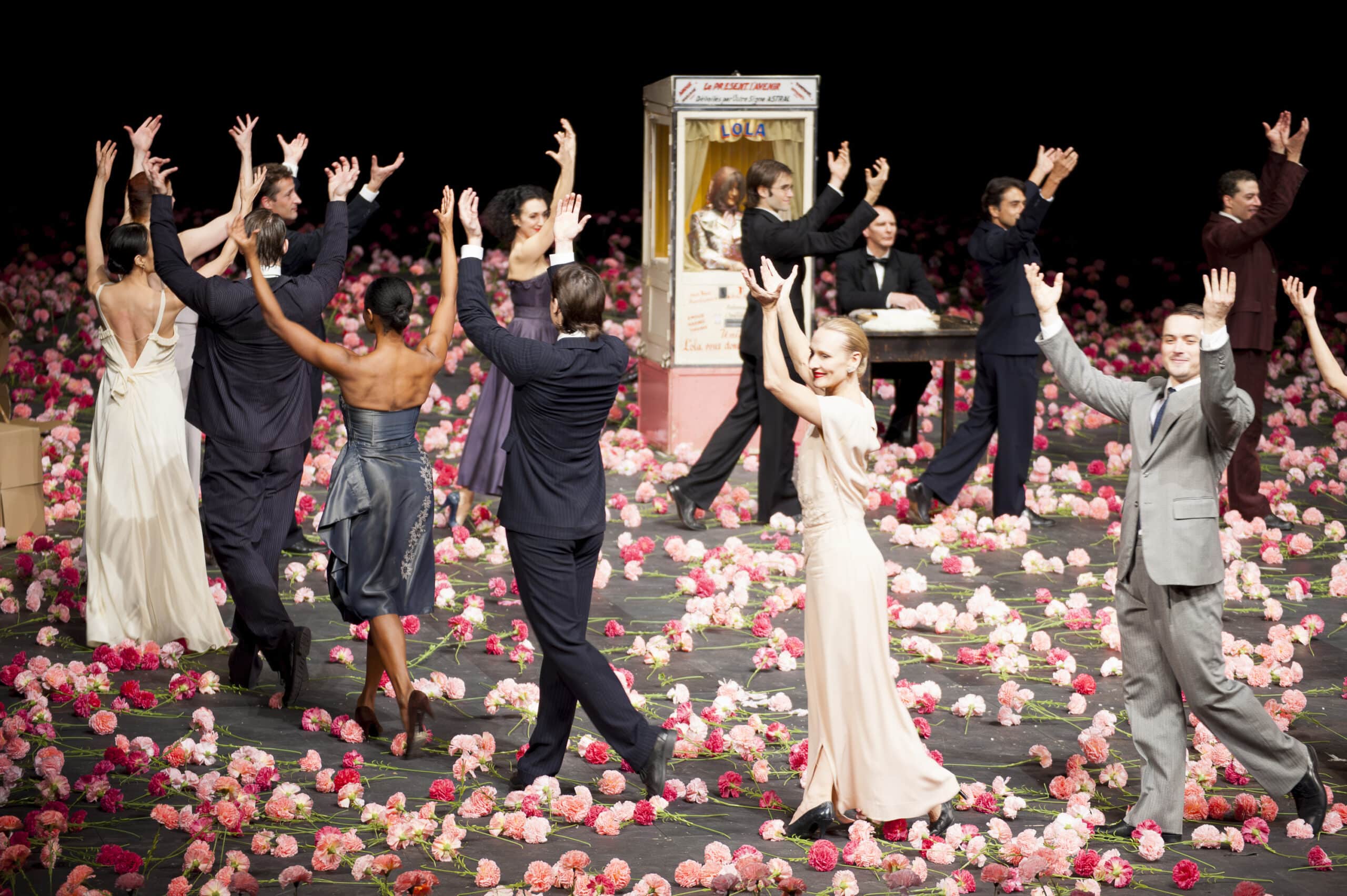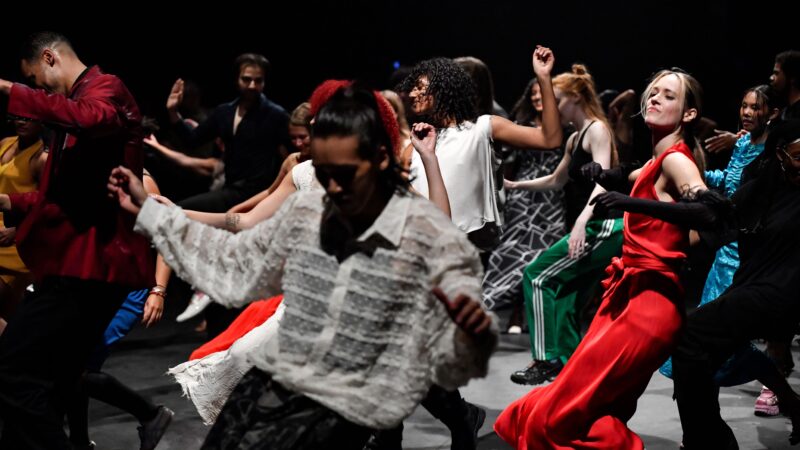Tanztheater Wuppertal Pina Bausch+ Terrain Boris Charmatz
Pina Bausch has caused a considerable rift in my household (from beyond the grave I might add). Our normally cohesive theatre-obsessed bubble of two, split down the middle by her infamous company’s style, fondness for repetition, and overall aura. So much so that my partner has refused flat out to join me for any future performances.
So on to Nelken (carnations), I trudge, alone, that is until I meet up with a like-minded friend, and fellow Bausch fan. Our joint love of the darling of neo-expressionism is worn on our breasts as badges of honour, sparkling in the moonlight “we understand dance” we say. We know Tanztheater, from its 1920s inception to its 1970s resurgence and Bausch’s heavy handprint from there on. We are the gifted, the bright, the chosen, in short, painfully smug.
The piece sits squarely in the middle of her extensive portfolio. Not the 70s upstart, but not quite yet the 90s revered name. It premiered in 1982. Can the excesses of the decade to come be better physicalised than the lush explosion of carnations on stage? 80000 to be precise, wrought prettily in silk.
By God aren’t they beautiful? Dancers pick their way gingerly through them, or trash and squash them in a wild rage, kicking clumps of the pink flowers high into the air. The trampled meadow in the final scene is like a wound, all crushed stalks, a bloody battlefield of coral and blush. Bausch and set designer Peter Pabst had/has an eye for effect. Leaping like wolves’ heads down backs bouncing the dancer’s thunder through the field, primal, yet carnation-tinted.
1930/40s bias cut slip dresses are clothing the stringy bodies of Tanztheater Wuppertal, then constricting into the era’s angular suits later on in the piece. Men and women fit with a range of success into the shivery silks, backs left wide open in many cases like children playing dress up. The childlike is played with throughout from large-scale games of grandmother’s footsteps to circus-like props (a terrifying animatronic mystic meg). Innocence is interlocked with the potential of violence held within every human. Pushing its ugly and angry head into the fray is the presence of a dictatorial regime. Dancers cling like baby monkeys to one another, only to be shoved to the floor, and asked to provide their passports. Flashes of the Hitler Youth and the controlling Cold War regime that had split Germany at the time of the premiere remind us that all is not as sweet as it seems in the floral world.
Reginald Lefebvre through is much centre stage, whether berating us or softly signing the lyrics to George Gershwin’s The Man I Love. A gifted actor and ecstatic dancer he blossoms (sorry) within the required duality of the piece. Bessie Smith and other 30s songs warble as well, but for a dance piece (and in comparison to some of her other work) Nelken is choreography light. Take that how you will. Explosive monologues, lots of shouting, and surreal dialog about relationship tactics take up far more time than actual movement.
Most of the Bausch hallmarks are here (both a blessing and a curse); Microphone work, relationship politics, (a little) whipping long black hair, comedy, tragedy, a sprinkle of self-indulgence, and plenty of repetition. Nelken’s main highlight is its exposed funny bone. It’s genuinely and consistently funny throughout. In a later scene a dancer chops onions next to the aforementioned animatronic fortune teller, and then all the male dancers sit down and slowly push their faces into the pile of chopped stinging veg. Hilarious, perplexing but hilarious. Alsatians are brought onto the stage (black-clad handlers and all) to bark in confusion at the cavorting bodies, again referencing a police/military state.
Yes, the jokes are slow in delivering the punch line, and the show could easily lose 30 minutes and still be as effective (and less straining on the bladder). Boris Charmatz (+ Terrain) is the current director and his careful resurrection of Nelken combines a love of spectacle with an arch sense of humour. Maybe with Charmatz at the head, I could trick my partner into coming, claim we are off to see Forty Second Street, and then quick-change at the last minute, but I heavily doubt it. He has developed a 7th sense in regards to our dear Pina, and nothing, not even my passionate, adoring, and multiple reviews can persuade him otherwise. Marmite on stage.



